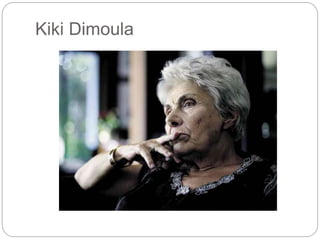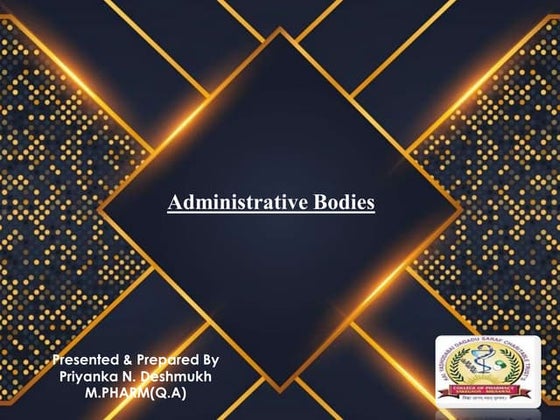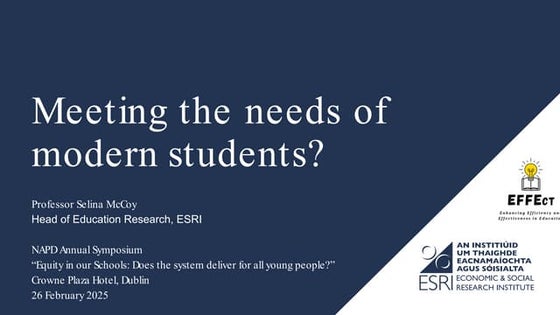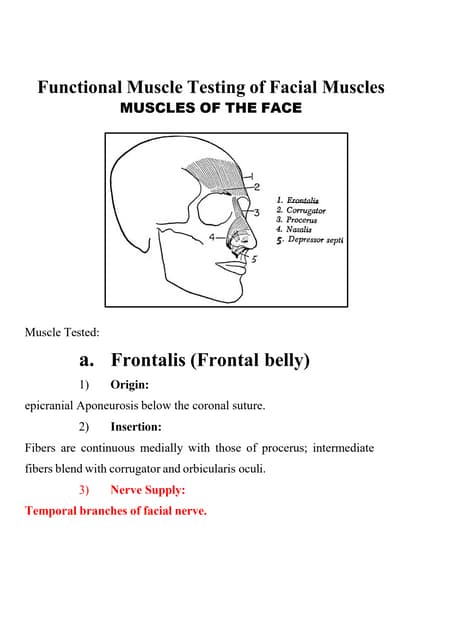Kiki Dimoula
0 likes121 views
Kiki Dimoula was a Greek poet born in 1931 in Athens. She worked as an editor for a magazine published by the Bank of Greece. She married poet Athos Dimoulas in 1954 and they had two children together. Dimoula published several collections of poetry and short stories over her career. Her poetry focused on themes of love, introspection, and everyday language. She received numerous honors for her work, including election to the Academy of Athens in 2002.
1 of 13

![ï Biography Kiki Dimoula
[1931-2020]
ï Vasiliki Radou, as her maiden
name was, was born in Athens
on June 6, 1931. She worked as
an employee at the Bank of
Greece.
ï For eight years she worked as a
second editor for the magazine
"Kyklos", published by the
bank, with literary and financial
content, in which a text was
published.
ï In 1954 she married the poet
Athos Dimoulas (1921-1986),
who worked as a civil engineer
at the Hellenic Railways. The
couple had two children,
Dimitris (1956) and Elsi (1957).](https://image.slidesharecdn.com/kikidimoula2-220609162206-e01c0aa8/85/Kiki-Dimoula-2-320.jpg)









![ï Expressive ways/ means
The main feature of the poem is
the complete absence of verb
forms, a technique that
contributes to the originality of
the poem and to the projection
of the four meanings of the
poem: [= of love, fear, memory
and night]. The absence of
verbs also gives austerity and
density to speech. In the poem
we find, finally, repetitions of
words, the purpose of which is
to emphasize the consequences
of the loss of love. The style of
the poem is simple, common,
natural. The language is also
simple and recalls the school
teaching of grammar of a
bygone era (noun , ,singular](https://image.slidesharecdn.com/kikidimoula2-220609162206-e01c0aa8/85/Kiki-Dimoula-12-320.jpg)

Recommended
Literature in Language Teaching 



Literature in Language Teaching Dr. Dawit Dibekulu
Ėý
This document provides an overview of literature and its use in language teaching. It begins by outlining the objectives of the presentation, which are to define literature from generic and functional perspectives, describe models for using literature in language teaching, discuss criteria for selecting literary texts, and provide an example evaluation of a grade 5 English textbook. It then introduces literature and provides definitions from various scholars. The main body discusses oral and written literature, their forms and genres. It explains key elements of fiction like setting, characters, plot, conflict, theme, and style. It also defines short stories and novels. The overall document serves to define literature and analyze its components to understand how it can be incorporated into language teaching.I am sharing 'Hidden Message in September 1 1939' 



I am sharing 'Hidden Message in September 1 1939' HinabaSarvaiya
Ėý
1) W.H. Auden's poem "September 1, 1939" references the date of Germany's invasion of Poland at the start of World War II but contains a hidden message about the lack of acceptance of homosexuality in society.
2) Auden uses metaphors like contrasts between light and dark and allusions to historical figures like Martin Luther and Diaghilev/Nijinsky to covertly critique the intolerance faced by homosexuals.
3) The poem was influenced by Auden's own experiences as a closeted gay man and his recent relationship with another man, allowing him to express his views on promoting love and tolerance between all people.Lyn



Lynjeremieengay
Ėý
This document provides biographies of several important Filipino writers, including Francisco Arcellana, N.V.M. Gonzalez, Nick Joaquin, F. Sionil Jose, Jose Garcia Villa, Edith L. Tiempo, and Amado V. Hernandez. It summarizes their major works and contributions to Philippine literature in English.Costas Montis



Costas MontisGalatia
Ėý
Costas Montis was a Cypriot poet born in 1914 who received numerous honors throughout his life. He wrote poetry, prose, and novels in both the Modern Greek and Cypriot dialects. Major themes in his work included Cypriot historical events like the liberation struggle against the British and the Turkish invasion of 1974. He also wrote about personal experiences like family life, death of loved ones, and nature. His poetry was characterized by succinctness, philosophical reflection on life and death, and the personification of natural elements. Montis was praised for renewing lyric poetry and enriching Modern Greek poetry from Cyprus's perspective over his 70-year literary career.English4printing5pages 101125095643-phpapp02



English4printing5pages 101125095643-phpapp02MG Abenio
Ėý
This document provides definitions and descriptions of different types of literature and poetry. It begins by defining literature as any written material, including works of artistic merit. It then describes the main types of literature as poetry, prose, plays, and novels. For poetry, it lists various forms such as sonnets, ballads, epics, and odes. It provides the characteristics and examples of these poetic forms. The document comprehensively summarizes different genres and styles of literature.Ulysses-James Joyce.docx



Ulysses-James Joyce.docxRaduAndreea9
Ėý
The document provides an overview and analysis of James Joyce's modernist novel Ulysses. It summarizes that the novel follows Leopold Bloom and Stephen Dedalus over the course of a single day in Dublin, mirroring the plot of Homer's Odyssey. While seemingly focused on ordinary events, Joyce portrays the day in an experimental style using stream-of-consciousness narration and multiple perspectives to explore themes of love, memory, religion, and identity in early 20th century Ireland.Literature



LiteratureBlue bear
Ėý
This document provides definitions and examples of different types of literature including poetry and prose. It discusses various forms of poetry such as sonnets, ballads, epics, lyrics and more. It also covers different types of prose like novels, short stories, biographies, plays, legends and more. Examples are given for many literary forms. The document is aimed at educating the reader about the various kinds of literature that exist.Module-0-Intro-to-Lit-9.4.23.pptx



Module-0-Intro-to-Lit-9.4.23.pptxShelsyFrancisco
Ėý
This document provides an overview of Philippine literature. It begins by explaining that Philippine literature evolved alongside the country's history, starting with oral traditions before Spanish influence. Several genres of Philippine literature are then defined, including novels, short stories, plays, legends, and fables. The document also discusses how literature was initially oral traditions and later written works influenced by Spanish colonizers. It provides context on the themes of Philippine literature and emphasizes the importance of understanding a country's literary heritage.Fire and Ice by Robert Frost



Fire and Ice by Robert FrostMuhammad Qasim
Ėý
This document provides an analysis of the poem "Fire and Ice" by Robert Frost. It begins with a brief biography of Robert Frost, noting he was born in 1874 in San Francisco and became interested in poetry from a young age. It then analyzes the poem's style, structure, imagery, symbolism, and use of literary devices like alliteration, assonance, and parallelism. The analysis concludes the poem centers around the concepts of desire and hate, represented by fire and ice, and contemplates how the world may end.The prisoner of Chillon



The prisoner of ChillonAleenaShaji5
Ėý
This document provides background information on Lord Byron and his poem "The Prisoner of Chillon". It discusses Byron's life, works, and status as a Romantic poet. It also analyzes the historical context, themes, symbols, and literary devices used in "The Prisoner of Chillon". These include isolation, exile, dichotomies between freedom and imprisonment, and figures of speech like simile, metaphor, paradox, and personification. The document quotes another author praising Byron's ability to convey authentic impressions and situations through his works.James joyce



James joycefrancescodn
Ėý
James Joyce was an Irish novelist born in 1882 who is considered one of the most influential writers of the 20th century. Some of his most famous works include Dubliners, A Portrait of the Artist as a Young Man, and Ulysses. Ulysses, published in 1922, depicts the wanderings of Leopold Bloom through Dublin in a single day and is influenced structurally by Homer's Odyssey. Joyce is noted for using experimental literary techniques like stream-of-consciousness and interior monologue to provide subjective perspectives on ordinary life and events in Dublin. He lived in exile for much of his life due to criticism of his works' depiction of sexuality and the Catholic Church.Famous turkish poets and writers



Famous turkish poets and writersMehmet TokgÃķz
Ėý
This document provides biographies of famous Turkish poets and writers, both from history and contemporary times. It discusses prominent figures like Yunus Emre, who influenced Turkish literature in the 13th century with his works composed in the spoken Turkish of the time. Later poets and writers mentioned include Mehmed Akif Ersoy, who wrote the Turkish national anthem, Nazim Hikmet, one of Turkey's modern pioneers, and contemporary authors like Orhan Pamuk, the first Turkish citizen to win the Nobel Prize in Literature, and Elif Shafak, Turkey's most widely read woman writer.canonicalphilippinenationalartistsinliterature-170802010705.pptx



canonicalphilippinenationalartistsinliterature-170802010705.pptxCasylouMendozaBorqui
Ėý
canonicalphilippinenationalartistsinliteratureWorld lit.



World lit.joanna martinez
Ėý
Wislawa Szymborska was a Polish poet born in 1923 in KÃģrnik, Poland. She studied Polish literature and sociology at Jagiellonian University in KrakÃģw from 1945-1948. Szymborska published her first poem in 1945 and went on to publish 16 collections of poetry. She worked as a poetry editor and columnist from 1953-1981. Szymborska received the Nobel Prize in Literature in 1996 for her poetry that uses ironic precision to reveal aspects of human reality.Literature-21st.pptx



Literature-21st.pptxHannahGabuyoFae
Ėý
The document discusses the definition and history of literature. It defines literature as anything printed related to human ideas and feelings, whether factual or imaginary. It then outlines the major time periods of Philippine literature in English from 1898 to the contemporary period. Finally, it describes the general types of literature, including prose, poetry, and their subcategories. Prose includes novels, short stories, plays, legends, essays, and more. Poetry is divided into narrative, lyric, and dramatic forms, with examples provided.4.pdf



4.pdfEdsonLiganan
Ėý
This document provides information about forms of poetry for a Grade 11/12 Creative Writing module. It begins with an introduction to poetry and its three main classifications: narrative, lyric, and dramatic. Several forms are discussed under each classification, including ballads, epics, sonnets, and soliloquies. The module aims to help students understand different elements, techniques, and literary devices used in various poetic forms. It includes activities for students to practice identifying classifications and creating acrostic and narrative poems.Types of Literature for Children.pptx



Types of Literature for Children.pptxyxzaDS
Ėý
This document discusses different types of children's literature including poetry, riddles, stories, and drama. It provides descriptions and examples for each type. Poetry is presented as a type of literature that conveys thoughts or describes scenes using lyrical language and specific arrangements of words. It can be structured with rhyme and meter or freeform with no set structure. Riddles are questions or puzzles that require critical thinking to solve. Stories are a connected series of events that can be told in various formats and cover many genres and topics. Drama combines both literature and theater, using dialogue and action to present a story with elements like setting, characters, plot, theme, and style.module3 teaching and assessment of lit.studies - Copy.pptx



module3 teaching and assessment of lit.studies - Copy.pptxAnalieCabanlit1
Ėý
The document discusses literature as a significant human experience. It defines literature as any form of writing that deals with human society and experiences in an artistic way. Literature comments on themes relating to the human condition, such as death, relationships, and conformity, which make it relatable to readers. It also teaches lessons about life through exploring human possibilities and helping people discover themselves and find meaning in life. The document examines different genres and elements of literature such as prose, poetry, fiction and non-fiction.Ballad



BalladDipti Vaghela
Ėý
The document discusses the origin and characteristics of ballads. It states that ballads derive from medieval French dance songs and were a form of popular poetry and song in Britain and Ireland from the late medieval period to the 19th century. Ballads tell simple narrative stories in short stanzas and were passed down orally at first before being written. They typically feature themes of love, violence, the supernatural and historical figures and are characterized by their singable nature, universal themes, and use of everyday language.Literary Genres, Traditions, and Forms Across the World.pptx



Literary Genres, Traditions, and Forms Across the World.pptxclaudiaharrison2004
Ėý
Powerpoint for Literary Genres, Traditions, and Forms Across the WorldLiterary Genres, Traditions, and Forms Across the World.pptx



Literary Genres, Traditions, and Forms Across the World.pptxclaudiaharrison2004
Ėý
21st Century - Literary Genres, Traditions, and Forms Across the WorldJames Joyce



James JoyceRiccardoPrencipe
Ėý
- James Joyce was born in Dublin in 1882 and wrote several famous works set in Dublin depicting realist portraits of everyday life, including Dubliners (1905), A Portrait of the Artist as a Young Man (1916), and Ulysses (1922).
- His style evolved from realism to incorporating interior monologue and symbolism. Dubliners consists of 15 short stories arranged in stages of life from childhood to maturity, dealing with themes of paralysis under restrictive social and cultural traditions.
- His final and most famous work, Ulysses, was published serially from 1918-1920 and portrayed a single day in Dublin through stream-of-consciousness narration incorporating various literary techniques. Joyce focused on offering EuropeanCREATIVE-WRITING-Quarter-1-Week-3-5 (1).pptx



CREATIVE-WRITING-Quarter-1-Week-3-5 (1).pptxJoshuaJavier23
Ėý
it's a presentation about CREATIVE WRITING Literary forms report.pptx



Literary forms report.pptxHoneyReynPaginadoDig
Ėý
The document discusses different literary forms and genres. It defines form as the style and structure of a literary work, while genre refers to a specific category of writing. Major literary forms include nonfiction prose, fiction prose, poetry, and drama. Nonfiction prose aims to convey information or persuade, while fiction is imaginary. Poetry uses rhythm and imagery. Drama combines elements of prose and poetry for performance. Examples are provided of genres within each form, such as biographies, mysteries, and comedies. Literary forms and genres provide structure and context to help authors express meaning.Poetry Synthesis Essay



Poetry Synthesis EssayWrite My Paper Fast Marymount Manhattan College
Ėý
Robert Frost's poem "Stopping by Woods on a Snowy Evening" explores themes of loneliness and depression through its rhythmic language and cryptic details. The poem describes a traveler stopping to view snowy woods belonging to an unknown owner. Though the horse gives its harness bells a shake, very few sounds are noted, deepening the narrator's somber mood. The poem implies the traveler has important duties calling him elsewhere yet finds the peaceful woods enticing, capturing the inner conflict between responsibility and repose.The history of Greek women writers 



The history of Greek women writers ApostolosTin
Ėý
Greek women writers have a long history dating back to antiquity with Sappho being considered the world's first female poet. However, from Sappho's time until later years, women's literary production faced great obstacles from men who held the view that writing was a male privilege. Some notable early women writers included Cassiani and Anna Komneni in the 12th century. In modern Greece, women began appearing in literature more in the late 18th and 19th centuries as enlightenment spread. However, critics still considered women's literature inferior to men's well into the early 20th century. Now in the 21st century, women's literary production in Greece is constantly increasing.Maria Iordanidou



Maria IordanidouApostolosTin
Ėý
Maria Kriezi-Iordanidou was a Greek novelist born in 1897 in Constantinople. She lived in various places due to World War I and her marriages. Her most famous work was Loxandra, published in 1962 when she was 65 years old, which describes Greek life in Constantinople in the late 19th and early 20th century based on her memories. It was her first literary work and brought her great success. She wrote several other books drawing from her experiences living in Russia, Egypt, and Greece. Iordanidou made important contributions to Greek literature late in her career through her vivid depictions of past life in her home cities.More Related Content
Similar to Kiki Dimoula (20)
Fire and Ice by Robert Frost



Fire and Ice by Robert FrostMuhammad Qasim
Ėý
This document provides an analysis of the poem "Fire and Ice" by Robert Frost. It begins with a brief biography of Robert Frost, noting he was born in 1874 in San Francisco and became interested in poetry from a young age. It then analyzes the poem's style, structure, imagery, symbolism, and use of literary devices like alliteration, assonance, and parallelism. The analysis concludes the poem centers around the concepts of desire and hate, represented by fire and ice, and contemplates how the world may end.The prisoner of Chillon



The prisoner of ChillonAleenaShaji5
Ėý
This document provides background information on Lord Byron and his poem "The Prisoner of Chillon". It discusses Byron's life, works, and status as a Romantic poet. It also analyzes the historical context, themes, symbols, and literary devices used in "The Prisoner of Chillon". These include isolation, exile, dichotomies between freedom and imprisonment, and figures of speech like simile, metaphor, paradox, and personification. The document quotes another author praising Byron's ability to convey authentic impressions and situations through his works.James joyce



James joycefrancescodn
Ėý
James Joyce was an Irish novelist born in 1882 who is considered one of the most influential writers of the 20th century. Some of his most famous works include Dubliners, A Portrait of the Artist as a Young Man, and Ulysses. Ulysses, published in 1922, depicts the wanderings of Leopold Bloom through Dublin in a single day and is influenced structurally by Homer's Odyssey. Joyce is noted for using experimental literary techniques like stream-of-consciousness and interior monologue to provide subjective perspectives on ordinary life and events in Dublin. He lived in exile for much of his life due to criticism of his works' depiction of sexuality and the Catholic Church.Famous turkish poets and writers



Famous turkish poets and writersMehmet TokgÃķz
Ėý
This document provides biographies of famous Turkish poets and writers, both from history and contemporary times. It discusses prominent figures like Yunus Emre, who influenced Turkish literature in the 13th century with his works composed in the spoken Turkish of the time. Later poets and writers mentioned include Mehmed Akif Ersoy, who wrote the Turkish national anthem, Nazim Hikmet, one of Turkey's modern pioneers, and contemporary authors like Orhan Pamuk, the first Turkish citizen to win the Nobel Prize in Literature, and Elif Shafak, Turkey's most widely read woman writer.canonicalphilippinenationalartistsinliterature-170802010705.pptx



canonicalphilippinenationalartistsinliterature-170802010705.pptxCasylouMendozaBorqui
Ėý
canonicalphilippinenationalartistsinliteratureWorld lit.



World lit.joanna martinez
Ėý
Wislawa Szymborska was a Polish poet born in 1923 in KÃģrnik, Poland. She studied Polish literature and sociology at Jagiellonian University in KrakÃģw from 1945-1948. Szymborska published her first poem in 1945 and went on to publish 16 collections of poetry. She worked as a poetry editor and columnist from 1953-1981. Szymborska received the Nobel Prize in Literature in 1996 for her poetry that uses ironic precision to reveal aspects of human reality.Literature-21st.pptx



Literature-21st.pptxHannahGabuyoFae
Ėý
The document discusses the definition and history of literature. It defines literature as anything printed related to human ideas and feelings, whether factual or imaginary. It then outlines the major time periods of Philippine literature in English from 1898 to the contemporary period. Finally, it describes the general types of literature, including prose, poetry, and their subcategories. Prose includes novels, short stories, plays, legends, essays, and more. Poetry is divided into narrative, lyric, and dramatic forms, with examples provided.4.pdf



4.pdfEdsonLiganan
Ėý
This document provides information about forms of poetry for a Grade 11/12 Creative Writing module. It begins with an introduction to poetry and its three main classifications: narrative, lyric, and dramatic. Several forms are discussed under each classification, including ballads, epics, sonnets, and soliloquies. The module aims to help students understand different elements, techniques, and literary devices used in various poetic forms. It includes activities for students to practice identifying classifications and creating acrostic and narrative poems.Types of Literature for Children.pptx



Types of Literature for Children.pptxyxzaDS
Ėý
This document discusses different types of children's literature including poetry, riddles, stories, and drama. It provides descriptions and examples for each type. Poetry is presented as a type of literature that conveys thoughts or describes scenes using lyrical language and specific arrangements of words. It can be structured with rhyme and meter or freeform with no set structure. Riddles are questions or puzzles that require critical thinking to solve. Stories are a connected series of events that can be told in various formats and cover many genres and topics. Drama combines both literature and theater, using dialogue and action to present a story with elements like setting, characters, plot, theme, and style.module3 teaching and assessment of lit.studies - Copy.pptx



module3 teaching and assessment of lit.studies - Copy.pptxAnalieCabanlit1
Ėý
The document discusses literature as a significant human experience. It defines literature as any form of writing that deals with human society and experiences in an artistic way. Literature comments on themes relating to the human condition, such as death, relationships, and conformity, which make it relatable to readers. It also teaches lessons about life through exploring human possibilities and helping people discover themselves and find meaning in life. The document examines different genres and elements of literature such as prose, poetry, fiction and non-fiction.Ballad



BalladDipti Vaghela
Ėý
The document discusses the origin and characteristics of ballads. It states that ballads derive from medieval French dance songs and were a form of popular poetry and song in Britain and Ireland from the late medieval period to the 19th century. Ballads tell simple narrative stories in short stanzas and were passed down orally at first before being written. They typically feature themes of love, violence, the supernatural and historical figures and are characterized by their singable nature, universal themes, and use of everyday language.Literary Genres, Traditions, and Forms Across the World.pptx



Literary Genres, Traditions, and Forms Across the World.pptxclaudiaharrison2004
Ėý
Powerpoint for Literary Genres, Traditions, and Forms Across the WorldLiterary Genres, Traditions, and Forms Across the World.pptx



Literary Genres, Traditions, and Forms Across the World.pptxclaudiaharrison2004
Ėý
21st Century - Literary Genres, Traditions, and Forms Across the WorldJames Joyce



James JoyceRiccardoPrencipe
Ėý
- James Joyce was born in Dublin in 1882 and wrote several famous works set in Dublin depicting realist portraits of everyday life, including Dubliners (1905), A Portrait of the Artist as a Young Man (1916), and Ulysses (1922).
- His style evolved from realism to incorporating interior monologue and symbolism. Dubliners consists of 15 short stories arranged in stages of life from childhood to maturity, dealing with themes of paralysis under restrictive social and cultural traditions.
- His final and most famous work, Ulysses, was published serially from 1918-1920 and portrayed a single day in Dublin through stream-of-consciousness narration incorporating various literary techniques. Joyce focused on offering EuropeanCREATIVE-WRITING-Quarter-1-Week-3-5 (1).pptx



CREATIVE-WRITING-Quarter-1-Week-3-5 (1).pptxJoshuaJavier23
Ėý
it's a presentation about CREATIVE WRITING Literary forms report.pptx



Literary forms report.pptxHoneyReynPaginadoDig
Ėý
The document discusses different literary forms and genres. It defines form as the style and structure of a literary work, while genre refers to a specific category of writing. Major literary forms include nonfiction prose, fiction prose, poetry, and drama. Nonfiction prose aims to convey information or persuade, while fiction is imaginary. Poetry uses rhythm and imagery. Drama combines elements of prose and poetry for performance. Examples are provided of genres within each form, such as biographies, mysteries, and comedies. Literary forms and genres provide structure and context to help authors express meaning.Poetry Synthesis Essay



Poetry Synthesis EssayWrite My Paper Fast Marymount Manhattan College
Ėý
Robert Frost's poem "Stopping by Woods on a Snowy Evening" explores themes of loneliness and depression through its rhythmic language and cryptic details. The poem describes a traveler stopping to view snowy woods belonging to an unknown owner. Though the horse gives its harness bells a shake, very few sounds are noted, deepening the narrator's somber mood. The poem implies the traveler has important duties calling him elsewhere yet finds the peaceful woods enticing, capturing the inner conflict between responsibility and repose.More from ApostolosTin (14)
The history of Greek women writers 



The history of Greek women writers ApostolosTin
Ėý
Greek women writers have a long history dating back to antiquity with Sappho being considered the world's first female poet. However, from Sappho's time until later years, women's literary production faced great obstacles from men who held the view that writing was a male privilege. Some notable early women writers included Cassiani and Anna Komneni in the 12th century. In modern Greece, women began appearing in literature more in the late 18th and 19th centuries as enlightenment spread. However, critics still considered women's literature inferior to men's well into the early 20th century. Now in the 21st century, women's literary production in Greece is constantly increasing.Maria Iordanidou



Maria IordanidouApostolosTin
Ėý
Maria Kriezi-Iordanidou was a Greek novelist born in 1897 in Constantinople. She lived in various places due to World War I and her marriages. Her most famous work was Loxandra, published in 1962 when she was 65 years old, which describes Greek life in Constantinople in the late 19th and early 20th century based on her memories. It was her first literary work and brought her great success. She wrote several other books drawing from her experiences living in Russia, Egypt, and Greece. Iordanidou made important contributions to Greek literature late in her career through her vivid depictions of past life in her home cities.Mary the tough girl



Mary the tough girlApostolosTin
Ėý
Mary is a tough baker who makes crunchy bread and brought back a calf from the bazaar where she went for milk. Sophia sings beautifully and found her husband while taking her dove for a walk at Christmas. Katina is an electrician whose wooden paddle hands protect her from electricity, and in 1969 she mopped the sea of the moon and accidentally ruined it.HERCULES.pptx



HERCULES.pptxApostolosTin
Ėý
The document provides details about the Greek hero Hercules and his famous 12 labors. It describes each labor in detail including symbols and meanings represented by aspects of the myths. The labors included killing the Nemean lion, defeating the Lernaean hydra, capturing the golden hind of Artemis, killing the Stymphalian birds, cleaning the Augean stables, capturing the Cretan bull, defeating the mares of Diomedes, taking the belt of Hippolyta, obtaining the cattle of Geryon, stealing the apples of Hesperides, capturing Cerberus, and releasing Prometheus. The document concludes with Hercules marrying Deianeira which leads to his death and subsequentOVID.pdf



OVID.pdfApostolosTin
Ėý
Ovid was remarkable for the attention he paid to women in his writing, as most works from ancient times were composed from a male perspective, often with ignorance and prejudice towards women. While some women wrote in their own voices in Greco-Roman times, Ovid was the first male writer to write from a woman's point of view. In his collection of poems called Heroides, Ovid recreated letters from 18 heroic women of mythology and 3 of their male partners, demonstrating an immense leap of imagination in Roman society to see from a woman's perspective.Introduction to MYTHOLOGY.pdf



Introduction to MYTHOLOGY.pdfApostolosTin
Ėý
Mythology plays a central role in modern literature, as many modern writers derive ideas from existing mythologies. Greek mythology in particular has had a significant impact on modern societies and culture. It can be seen influencing language, art, literature and popular culture. For example, characters from Greek myths like Hercules, Venus and Hades are commonly known in modern culture through movies, television shows, books and famous works of art that retell or reference these mythical figures and stories.Aeneas.pptx



Aeneas.pptxApostolosTin
Ėý
This document summarizes the journey of Aeneas after the fall of Troy. It describes how Aeneas escaped Troy carrying his father on his back and refused offers to stay, instead traveling west with other Trojans. The Trojans encountered obstacles like monsters and competed in Greece before Aeneas received a prophecy about settling in Italy. There, Aeneas founded the city of Lavinium and later died, with his descendants founding Rome. The document traces the mythology that connected Aeneas to the founding of Rome.Dido and Aeneas.pptx



Dido and Aeneas.pptxApostolosTin
Ėý
Aeneas describes to Dido the events of the Trojan War, specifically telling her about how the Greeks used the Trojan Horse to invade Troy by hiding soldiers inside it and sneaking them into the city when it was brought behind the walls.CARPE DIEM.pptx



CARPE DIEM.pptxApostolosTin
Ėý
This document discusses the Latin phrase "Carpe Diem" which means "seize the day". It originated from a poem by Horace where he advises his friend Lefkonoe to seize the day and not worry about tomorrow. The phrase encourages people to value each day and live fully in the present without taking life for granted. It later became well-known from the 1989 film "Dead Poets Society" and has appeared in songs. The overall message is to appreciate each day and make the most of life as it is happening rather than being anxious about the future.Pararlama - Demosthenes Voutyras



Pararlama - Demosthenes VoutyrasApostolosTin
Ėý
The document provides background information about the Greek author Demosthenes Voutyras and summarizes his short story "Pararlama". The story is about a marginalized factory worker named Farmas who feels unseen by his colleagues. To get attention and provoke a reaction, Farmas secretly writes an unknown word, "Pararlama", on the factory walls at night. This action frightens his coworkers and Farmas enjoys watching them speculate about who wrote it. In the end, Farmas remains an outsider, unable to change his circumstances.ZORBA THE GREEK



ZORBA THE GREEKApostolosTin
Ėý
The syrtaki dance composed by Mikis Theodorakis for the movie "Zorba the Greek" has become iconic of Greece. It starts slowly and accelerates, featuring small, fast leg bounces. Known as both Zorba's dance and the Greek syrtaki dance, it draws from traditional Greek dances but stands out for its increasing pace. The energetic dance in a line or circle builds to a very fast speed requiring physical stamina to complete.Thoughts and Feelings



Thoughts and FeelingsApostolosTin
Ėý
This poem explores feelings of uncertainty and difficulty during challenging times like war and pandemics, noting that it can be hard to describe how one truly feels when everyone says it will be okay. However, it suggests that hope and focusing on using compassion ("our heart") to bring people together can help get through such periods and that it's important to keep striving to survive and appreciate life's beauty like the sky.Gr students



Gr studentsApostolosTin
Ėý
This document introduces Greek students participating in the "Our European Literary Routes" virtual mobility program with Romania. It includes brief self-introductions from several students, providing their names, ages, locations, hobbies and interests. The students share photos of themselves, friends, activities and past travels. They look forward to meeting and connecting with students from other nations through the Erasmus+ program.Recently uploaded (20)
One Click RFQ Cancellation in Odoo 18 - Odoo šÝšÝßĢs



One Click RFQ Cancellation in Odoo 18 - Odoo šÝšÝßĢsCeline George
Ėý
In this slide, weâll discuss the one click RFQ Cancellation in odoo 18. One-Click RFQ Cancellation in Odoo 18 is a feature that allows users to quickly and easily cancel Request for Quotations (RFQs) with a single click.Full-Stack .NET Developer Interview Questions PDF By ScholarHat



Full-Stack .NET Developer Interview Questions PDF By ScholarHatScholarhat
Ėý
Full-Stack .NET Developer Interview Questions PDF By ScholarHatEntity Framework Interview Questions PDF By ScholarHat



Entity Framework Interview Questions PDF By ScholarHatScholarhat
Ėý
Entity Framework Interview Questions PDF By ScholarHatHow to create security group category in Odoo 17



How to create security group category in Odoo 17Celine George
Ėý
This slide will represent the creation of security group category in odoo 17. Security groups are essential for managing user access and permissions across different modules. Creating a security group category helps to organize related user groups and streamline permission settings within a specific module or functionality.BISNIS BERKAH BERANGKAT KE MEKKAH ISTIKMAL SYARIAH



BISNIS BERKAH BERANGKAT KE MEKKAH ISTIKMAL SYARIAHcoacharyasetiyaki
Ėý
BISNIS BERKAH BERANGKAT KE MEKKAH ISTIKMAL SYARIAHAdministrative bodies( D and C Act, 1940



Administrative bodies( D and C Act, 1940P.N.DESHMUKH
Ėý
These presentation include information about administrative bodies such as D.T.A.B
CDL AND DCC, etc.Meeting the needs of modern students?, Selina McCoy



Meeting the needs of modern students?, Selina McCoyEconomic and Social Research Institute
Ėý
NAPD Annual Symposium
âEquity in our Schools: Does the system deliver for all young people?âOral exam Kenneth Bech - What is the meaning of strategic fit?



Oral exam Kenneth Bech - What is the meaning of strategic fit?MIPLM
Ėý
Presentation of the CEIPI DU IPBA oral exam of Kenneth Bech - What is the meaning of strategic fit? Hannah Borhan and Pietro Gagliardi OECD present 'From classroom to community ...



Hannah Borhan and Pietro Gagliardi OECD present 'From classroom to community ...EduSkills OECD
Ėý
Hannah Borhan, Research Assistant, OECD Education and Skills Directorate and Pietro Gagliardi, Policy Analyst, OECD Public Governance Directorate present at the OECD webinar 'From classroom to community engagement: Promoting active citizenship among young people" on 25 February 2025. You can find the recording of the webinar on the website https://oecdedutoday.com/webinars/
Mastering Soft Tissue Therapy & Sports Taping



Mastering Soft Tissue Therapy & Sports TapingKusal Goonewardena
Ėý
Mastering Soft Tissue Therapy & Sports Taping: Pathway to Sports Medicine Excellence
This presentation was delivered in Colombo, Sri Lanka, at the Institute of Sports Medicine to an audience of sports physiotherapists, exercise scientists, athletic trainers, and healthcare professionals. Led by Kusal Goonewardena (PhD Candidate - Muscle Fatigue, APA Titled Sports & Exercise Physiotherapist) and Gayath Jayasinghe (Sports Scientist), the session provided comprehensive training on soft tissue assessment, treatment techniques, and essential sports taping methods.
Key topics covered:
â
Soft Tissue Therapy â The science behind muscle, fascia, and joint assessment for optimal treatment outcomes.
â
Sports Taping Techniques â Practical applications for injury prevention and rehabilitation, including ankle, knee, shoulder, thoracic, and cervical spine taping.
â
Sports Trainer Level 1 Course by Sports Medicine Australia â A gateway to professional development, career opportunities, and working in Australia.
This training mirrors the Elite Akademy Sports Medicine standards, ensuring evidence-based approaches to injury management and athlete care.
If you are a sports professional looking to enhance your clinical skills and open doors to global opportunities, this presentation is for you.Functional Muscle Testing of Facial Muscles.pdf



Functional Muscle Testing of Facial Muscles.pdfSamarHosni3
Ėý
Functional Muscle Testing of Facial Muscles.pdfRRB ALP CBT 2 RAC Question Paper MCQ (Railway Assistant Loco Pilot)



RRB ALP CBT 2 RAC Question Paper MCQ (Railway Assistant Loco Pilot)SONU HEETSON
Ėý
RRB ALP CBT 2 RAC Question Paper MCQ PDF Free Download. Railway Assistant Loco Pilot Mechanic Refrigeration and Air Conditioning Important Questions.Báŧ TEST KIáŧM TRA GIáŧŪA KÃ 2 - TIášūNG ANH 10,11,12 - CHUášĻN FORM 2025 - GLOBAL SU...



Báŧ TEST KIáŧM TRA GIáŧŪA KÃ 2 - TIášūNG ANH 10,11,12 - CHUášĻN FORM 2025 - GLOBAL SU...Nguyen Thanh Tu Collection
Ėý
https://app.box.com/s/ij1ty3vm7el9i4qfrr41o756xycbahmgInterim Guidelines for PMES-DM-17-2025-PPT.pptx



Interim Guidelines for PMES-DM-17-2025-PPT.pptxsirjeromemanansala
Ėý
This is the latest issuance on PMES as replacement of RPMS. Kindly message me to gain full access of the presentation. Chapter 2. Strategic Management: Corporate Governance.pdf



Chapter 2. Strategic Management: Corporate Governance.pdfRommel Regala
Ėý
This course provides students with a comprehensive understanding of strategic management principles, frameworks, and applications in business. It explores strategic planning, environmental analysis, corporate governance, business ethics, and sustainability. The course integrates Sustainable Development Goals (SDGs) to enhance global and ethical perspectives in decision-making.Year 10 The Senior Phase Session 3 Term 1.pptx



Year 10 The Senior Phase Session 3 Term 1.pptxmansk2
Ėý
Year 10 The Senior Phase Session 3 Term 1.pptxAzure Administrator Interview Questions By ScholarHat



Azure Administrator Interview Questions By ScholarHatScholarhat
Ėý
Azure Administrator Interview Questions By ScholarHatBáŧ TEST KIáŧM TRA GIáŧŪA KÃ 2 - TIášūNG ANH 10,11,12 - CHUášĻN FORM 2025 - GLOBAL SU...



Báŧ TEST KIáŧM TRA GIáŧŪA KÃ 2 - TIášūNG ANH 10,11,12 - CHUášĻN FORM 2025 - GLOBAL SU...Nguyen Thanh Tu Collection
Ėý
Kiki Dimoula
- 1. Kiki Dimoula
- 2. ï Biography Kiki Dimoula [1931-2020] ï Vasiliki Radou, as her maiden name was, was born in Athens on June 6, 1931. She worked as an employee at the Bank of Greece. ï For eight years she worked as a second editor for the magazine "Kyklos", published by the bank, with literary and financial content, in which a text was published. ï In 1954 she married the poet Athos Dimoulas (1921-1986), who worked as a civil engineer at the Hellenic Railways. The couple had two children, Dimitris (1956) and Elsi (1957).
- 3. ï Her writing work ï Kiki Dimoula was a distinguished and multi- award winning. She belongs to the second post-war generation of Greek poets with a great impact on the reading public. She first appeared in letters in 1952 with the poetry collection "Poems", which she later rejected and withdrew from circulation. Since then, she has published many collections of poetry and short stories
- 4. Her poetry brings together some of the basic features of the poetry of this generation, both linguistically and thematically: âĒlove, âĒintroversion and existential reflection, âĒdressed in a simple, every day and topical speech. The ironic element is also present in her poems. Dimoula, of course, has her own, personal, poetic idiom with a special feature of the revolutionary use of words and phrases.
- 5. Awards âĒIn 2002 she was elected a full member of the Academy of Athens, just the third woman to receive this honor, from the highest intellectual institution of Greece. âĒThe awards for Kiki Dimoula continued in 2009 with the Grand Prize for Literature where she was honored for all her work by the Minister of Culture Pavlos Geroulanos. The award ceremony took place during the 2010 State
- 6. âĒIn addition, in 2010 she was awarded the Grand State Prize for Literature, also for all her work. Her poems have been translated into many languages (English, French, Spanish, Italian, Polish, Bulgarian, German, Swedish ,etc.)
- 7. ï The Plural Form The love, noun form, very substantial, singular number, gender neither female nor male, helpless. plural form the helpless loves. The fear, noun form, at first singular number and then plural: the fears. The fears of everything from now onwards.
- 8. The memory, main name for sorrows, singular number, only a singular number and unconjugated. The memory, the memory, the memory. The night, noun form, female gender singular. Plural form the nights. The nights from now onwards.
- 9. ï ANALISIS OF THE POEM ï The theme The theme of the poem is love and the mental states that accompany it (fear, memory , night )Each verse of the poem focuses on an abstract noun that results from the feeling of emptiness left by love. When the person is left alone with his absence and his loneliness, fears and insecurities multiply and his nights become bitter and endless in duration
- 10. ï The title From its title, the poem seems to seek to define what a grammatical meaning is: The Plural. All in all, it seems like the grammatical representation of four nouns: love, fear, memory and night. On a second level, however, it tells a short story and,despite the visible absence of the poetic subject, it records a personal experience.
- 11. ï The poetic subject: The poem is superficially like a grammatical recognition of four nouns, which aroused with a metaphorical or subjective meaning. Through them a short love story with a bitter ending is given, which essentially ends in an analysis of human relationships.
- 12. ï Expressive ways/ means The main feature of the poem is the complete absence of verb forms, a technique that contributes to the originality of the poem and to the projection of the four meanings of the poem: [= of love, fear, memory and night]. The absence of verbs also gives austerity and density to speech. In the poem we find, finally, repetitions of words, the purpose of which is to emphasize the consequences of the loss of love. The style of the poem is simple, common, natural. The language is also simple and recalls the school teaching of grammar of a bygone era (noun , ,singular
- 13. ï Overall rating When love comes to an end, the person who suffers the loss becomes vulnerable and in pain, because it is not easy to be redeemed from a present, living and traumatic memory (memory, memory, memory As the poet says in an interview, âlove is suicide;: it has no why and how, one day it dies without a specific cause, because love wants itâ.







